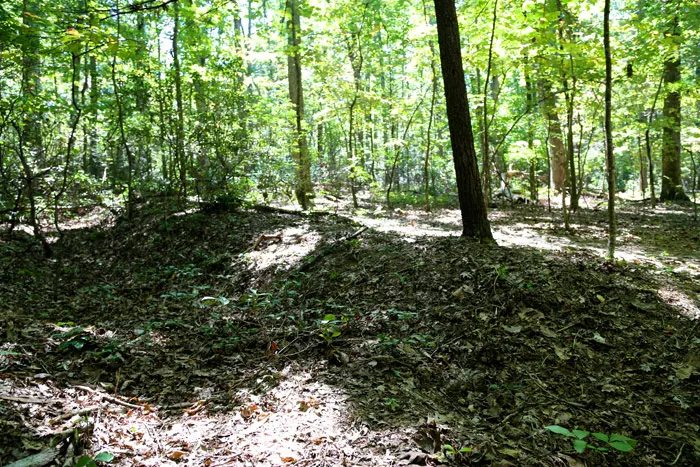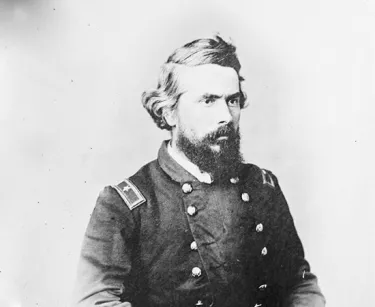Gordon's Flank Attack

On the night of May 5, Ewell shifted General John Gordon’s Georgia brigade from the far right end of his line to the far left, reuniting it with the rest of General Jubal Early’s division. At the first blush of dawn, Gordon made a reconnaissance of his new position and discovered that his brigade overlapped the Union line, which ended in this vicinity. Remnants of the Union trench line are still visible today.

Gordon reported his findings to his superiors, Early and Ewell, and asked for permission to attack the flank. Ewell showed interest in the proposition but Early opposed it, arguing that it would render the corps vulnerable to a potentially devastating counterattack by the Federals. Before Ewell could make a decision on the matter, he was called away to a conference with Lee. When he returned about midday, he authorized Gordon to attack but insisted he withhold his blow until sunset in order to magnify Gordon’s small numbers and to create greater terror in the Union ranks.

Gordon’s brigade, supported by General Robert D. Johnston’s Virginians, struck just before dark, catching Union troops here entirely by surprise. Gordon’s Georgians gobbled up 800 prisoners, including two brigade commanders, Generals Alexander Shaler and Truman Seymour. But Grant had a large body of troops in reserve nearby, which, along with the confusion caused by the growing darkness, brought a halt to the fighting. During the night, Grant successfully drew back his right flank and dug in along a new line.
To the end of his days, Gordon believed that had Ewell only allowed him to make his attack earlier in the day he could have inflicted a heavy defeat on the Union army and thrown it back across the Rapidan River. Not surprisingly, Early took the opposite view, arguing that Gordon achieved what little success he had only because the growing darkness enabled him to achieve surprise and magnified the size of the Confederate force.
Related Battles
17,000
13,000






